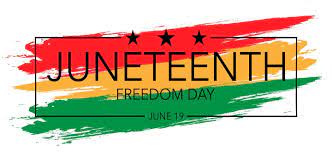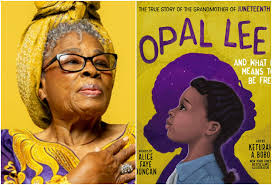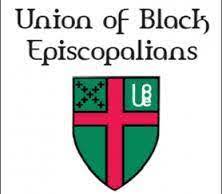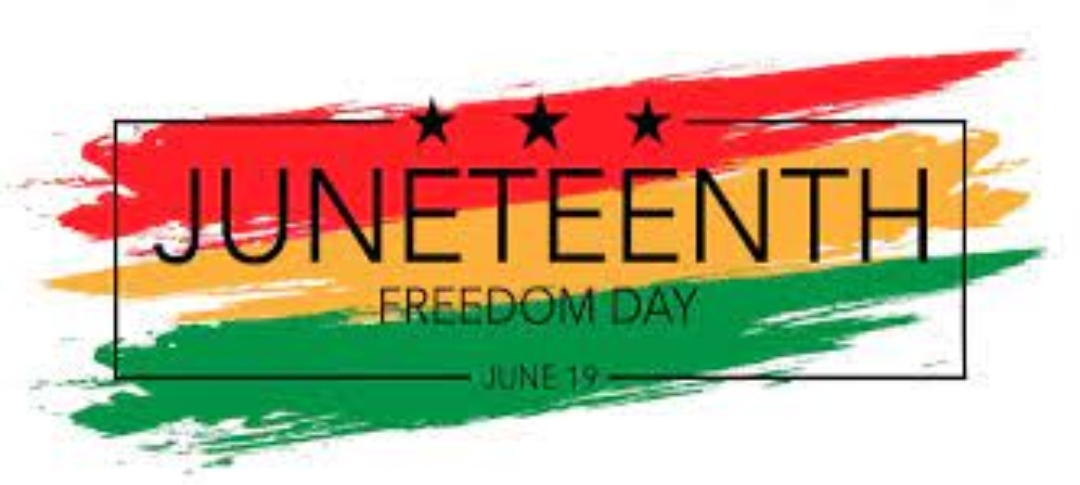 St Alban’s Episcopal Church Bolivar, Missouri Saturday-Sunday, June 18-19, 2022 Juneteenth Remembering for the future Juneteenth – a short history A story about how declaring a right doesn’t necessarily guarantee one. Texas was the western-most edge of the Union in the Civil War. But Texas also had slaves. Lots of them. When Lincoln wrote the Emancipation Declaration, it was supposed to include all enslaved people in the Confederacy. He could not enforce it, obviously, in the southern states which had broken from the United States to form their own short-lived nation. But Black people took their freedom anyway, escaping to the north, to Mexico, or to Union army facilities. But slave owners in Texas, a Union state, refused to follow that order. They weren’t IN the Confederacy. It didn’t legally apply to them, even if it did morally. And they wanted the free labor that slavery gave them. Even after the war was over and slavery had been abolished, Texas held on to their slaves. (So did Missouri, by the way.) It wasn’t until June 19, 1865 that an order was published in Galveston, Texas that read, in part: “The people of Texas are informed that, in accordance with a proclamation from the Executive of the United States, all slaves are free. This involves an absolute equality of personal rights and property between former masters and slaves…” Yes, but…Why does this matter to us Because most of those slaves, and most of those enslavers were Christians. And it is the obligation of the Church to tell the truth, and to hear it, in order to set us all free. It is not just ancient history, either. Re-read that declaration about “absolute equality” and then note how the emblems of the Confederacy are still used – even by some Christians. We have work to do right now. August 4 – Emancipation Day in Missouri It might surprise you to know that for many years, August 4 – not Juneteenth – was celebrated in Missouri as Emancipation Day. Why? Like Texas, Missouri was a Union state, but it had and wanted to keep, its enslaved population. But Missouri’s history was different from Texas’. A Missouri state convention approved an ordinance abolishing slavery in Missouri in the state on January 11, 1865 by a vote of 60-4. But that did not result in the freedom of equality that it promised. Already in 1853, Frederick Douglass spoke to a mostly white audience in Missouri at an Independence Day celebration and said, “The fourth of July is yours, not mine – you must rejoice, I must mourn.” This African American reluctance to celebrate July 4th as a day of freedom carried over into the 20th century. Black Americans in Missouri often celebrated their freedom on August 4, not July 4. As Columbia native, Sehon Williams noted in a 2006 interview, “White folks had their day for celebrating freedom. Black folks wanted their day, too.” Choosing August 4th the delay that African Americans experienced in gaining their freedom. And most Black communities in our state embraced it as an alternative 4th of July, as “Emancipation Day” and did not celebrate Juneteenth. Age is no excuse not to do the work Opal Lee  Texan, Opal Lee, was 89 when she began her campaign to make Juneteenth the eleventh federal holiday. As a little girl she had been part of enthusiastic public Juneteenth celebrations in her home town of Marshall. She says it was “like Christmas” with music, speeches, ball games, laughter, talk, and so much food. In 1939 her family moved to Fort Worth and bought a house in a neighborhood where they were not wanted. On June 19th, a mob of 500 men attacked the home. The police told her father that if he used his gun to stop them they would let the mob have him. That white mob burned their house; the family escaped with their lives and nothing else. Legal enslavement may have ended, but freedom wasn’t a reality, either. She said her parents never even mentioned it again; they worked hard and bought another house. That tenacity obviously made her who she still is. And so the “grandmother of Juneteenth”, Opal Lee compiled 1.5 million signatures, got celebrity involvement, and walked again and again each time for 2 1/2 miles in cities across the country, to symbolize the 2 1/2 years it took for Union slave owners in Texas to obey the Emancipation Proclamation issued in 1863. It wasn’t that slaves didn’t know about it before. They did. But knowing they were free, and getting their freedom were two different things. And she believed that the date on which Texas – (and Missouri)- enslavers were finally forced to give up their slaves ought to be celebrated by all Americans. We all need to look honestly at our past and set it down so we can move forward together. And on June 18th, 2021, with 94 year old Opal Lee on hand, Joe Biden proclaimed Juneteenth as the eleventh national day of observance. And at 95, she’s leading another 2 1/2 mile march today in celebration. What can we do? Bishop Diane is already a member of the UBE. We are starting a chapter in West MO. All Black Episcopalians are urged to join – but also all who are allies and friends doing the work of anti-racism in our Church and society. You can find more info on our facebook page or look up UBE on google.  |

Categories:
Tags:
No responses yet